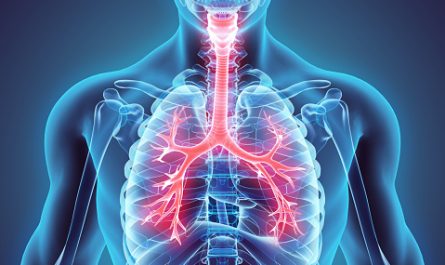9 Health Benefits of Eating Eggs
Eggs are a very versatile food, making them a great addition to any menu. If you have been trying to eat healthier, but have been having trouble sticking to your diet and not feeling satisfied, eggs may be the solution! They not only offer you protein, but also calcium and B vitamins.
Eggs are one of the most nutritious foods you can eat. They come packed with protein, vitamins, and minerals, and they’re a great way to start your day. Not only do eggs make for an easy breakfast but they also contain omega-3s and antioxidants which can help boost your immune system, support healthy bones and keep your eyesight sharp. Eggs are also a great source of folate which helps reduce the risk of certain cancers, heart disease, and depression
Adding eggs to your diet is an easy way to increase your intake of vitamins and minerals, especially if they’re part of a healthy breakfast. Eggs are also filling and make a great base for many different dishes.
Eggs are a good source of protein, vitamins, and nutrients and are easily digestible. They can be eaten in a variety of ways, including omeletan filled with veggies and cheese, baked inside of a frittata, or scrambled with sausage. If you’re concerned about cholesterol in eggs, remember they’re a great source of fat-soluble vitamins like A and E.
1. It’s a nutritious treat.
However generally little in size, eggs pack a great deal of nourishment and can be a significant staple in an even eating regimen.
One huge bubbled egg has around 77 calories and contains:
- Nutrients D, E, K, B6, A, B5, B12.
- Folate
- Phosphorus
- Selenium
- Calcium
- Zinc
- Six grams of protein
- Five grams of sound fats
“Eggs are a decent wellspring of protein (the two whites/yolk). They likewise contain heart-sound unsaturated fats and are an incredible wellspring of significant supplements, like vitamin B6, B12, and vitamin D,” says Kurt Hong, MD, an inward medication expert at Keck Medication of USC.
2. Eating cholesterol affects different people a differently.
Without a doubt, the case eggs expressly egg yolks are high in cholesterol. A solitary enormous egg has roughly 186 mg of dietary cholesterol. Notwithstanding, before taking out eggs from the menu, it merits examining the dietary rules given by the U.S. Division of Agribusiness (USDA). One review recommends that eggs don’t raise cholesterol by any stretch of the imagination for around 70% of individuals. As per the specialists, cholesterol in the eating regimen doesn’t be guaranteed to bring cholesterol up in the blood. The excess 30%, who are designated “hyper responders,” can gently raise aggregate and low-thickness lipoprotein (LDL) cholesterol by consuming eggs.
“Likewise with any food, the key here is utilization with some restraint,” says Hong, who is likewise a clinical teacher of medication at the Keck Institute of Medication of USC.
3. Eggs raise good cholesterol.
Eating eggs prompts raised degrees of high-thickness lipoprotein (HDL), otherwise called the “upside” cholesterol. Individuals who have higher HDL levels have a lower hazard of coronary illness, stroke, and other medical problems. As per one review, eating two eggs per day for a very long time expanded HDL levels by 10%.
4. Get some choline.
Choline is a water-solvent nutrient that is frequently gathered with the B nutrients. It’s utilized to construct cell films and helps produce flagging particles in the cerebrum. One hard-bubbled egg has around 147 mg of choline, which is 27% of the day-to-day esteem suggested by the U.S. Food and Medication Organization (FDA).
5. Eggs help maintain your eyesight.
As we age, we want to care more for our eyes. Egg yolks contain a lot of lutein and zeaxanthin, supportive cell reinforcements that assist with decreasing the gamble of waterfalls and macular degeneration in the eyes. Eggs are likewise high in vitamin A, which is gainful for eye well-being.

6. Some eggs are better for you.
Omega-3 diminishes fatty oils, which are a kind of lipid fat in the blood. That is the reason eating Omega-3 advanced eggs might be a choice, especially on the off chance that you hate different food varieties (fish, nuts, seeds) that are normally wealthy in Omega-3. (Assuming your fatty substance level is under 150, you’re getting along admirably; 150-199 is marginal high; 200-499 is high; and 500 or more is viewed as extremely high.)
7. Get enough proteins and amino acids.
Getting sufficient protein in our weight control plans is a significant approach to aiding our body’s well-being. Each egg contains around six grams of protein, as well as supportive amino acids. Getting our portion of protein for the day can assist with weight the executives, increment bulk, lower circulatory strain and help our bones, also.
8. They’re not bad for the heart.
In spite of what was had faith in earlier many years, there is no immediate connection between egg utilization and coronary illness or stroke. Yet, a few examinations show that individuals with diabetes who eat eggs increment their opportunity of coronary illness. Individuals who follow a low-starch diet and eat eggs have to a lesser degree a possibility creating coronary illness, a few examinations recommend.
9. It’s a filling meal.
Eggs are a nutritious and filling breakfast. Eggs are high in protein and contain vitamins and minerals, which help us to have sustained energy throughout the day. Although they may be a little more expensive when compared to other meals, eggs aren’t hard to cook and tend to keep you fuller for longer than some other meals.
Eggs are a filling, high-protein and low-carbohydrate food that is versatile in cooking and eating. They can be eaten for breakfast, for snacks, as part of a meal, or as a side dish. Eggs are a nutritious and filling meal, packed with protein. They’re also delicious whenever you’re not sure what you want for breakfast or lunch!
Eggs are a small, inexpensive source of high-quality protein and nutrients. They’re also an excellent source of choline, which helps to form essential cell membranes and to maintain healthy nerve and brain function. They’re also rich in iron and vitamin B12, which are important for metabolism and healthy blood cells.”



